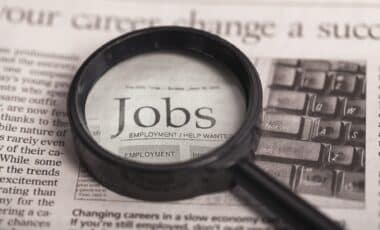In the lead-up to the Australian federal election, Prime Minister Anthony Albanese has made a firm pledge to safeguard penalty rates, promising to enshrine them into law should his government be re-elected, reports The Guardian.
The promise comes at a time when political tensions around workers’ rights are reaching a fever pitch. Albanese’s move aims to combat recent attempts by employer groups to reduce penalty rates, a policy that could significantly impact millions of Australian workers.
Alongside the penalty rates issue, Albanese and other senior Labor figures have sought to reignite the debate over working from home. The Coalition’s shifting stance on remote work is also a hot topic, with accusations flying from both sides of politics.
Protecting Workers’ Rights
Labor’s commitment to maintaining penalty rates is rooted in the belief that these payments are an essential part of fair remuneration, particularly for lower-paid workers.
According to Albanese, penalty rates helped him during his university years and he believes they play a crucial role in ensuring workers earn a fair wage for their unsociable hours. “We want Australians to earn more and keep more of what they earn,” said Albanese.
The Australian Retailers Association and other business groups have recently called for changes to penalty rates, suggesting that workers be offered a 25% pay rise in exchange for giving up these allowances.
However, Labor has opposed these changes, with Employment Minister Murray Watt asserting that penalty rates should be protected by law. He argued that if the proposed cuts were to go ahead, workers’ incomes could decrease by thousands of dollars annually, particularly for those on lower wages.
The debate over penalty rates is not just about wages but about broader issues of fairness in the workplace, especially as businesses push for greater flexibility in costs. With more than three million Australian workers currently on awards overseen by the Fair Work Commission, the outcome of this policy could have significant implications for the country’s labour market.
The Return-to-Office Debate
In addition to its focus on wage protection, Labor is also emphasising the issue of working from home, which has been a contentious topic in recent years. During the election campaign, comments made by Liberal MP Jane Hume resurfaced, suggesting that the Coalition still supports a return to office-based work for many employees.
This sparked a sharp response from Labor figures, including Education Minister Jason Clare, who accused Peter Dutton, the opposition leader, of “pretending” that he no longer advocated for such policies.
According to Clare, Hume’s comments indicated that a future Liberal government would seek to limit remote working arrangements. Labor, by contrast, has positioned itself as a defender of workers’ flexibility, arguing that remote work should remain an option in order to balance work-life dynamics, particularly for parents and carers.









